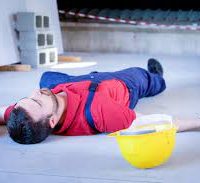Slips & Falls The Legal Landscape of Premises Liability

When we step onto someone else’s property, whether it’s a shopping mall, a neighbor’s home, or a commercial establishment, we expect a reasonable level of safety. However, accidents can happen, and if you’ve ever slipped, tripped, or fallen on another person’s property due to negligence, you might find yourself delving into the intricate realm of “Premises Liability.” In this article, we will explore the legal landscape of premises liability, examining cases involving accidents on properties, like slips and falls, and the responsibility of property owners.
Understanding Premises Liability:
Premises liability is a legal concept that holds property owners and occupiers responsible for injuries or accidents that occur on their property due to unsafe conditions or negligence. This area of law often includes cases of:
- Slip and Fall Accidents: These accidents frequently occur when visitors or guests slip on wet floors, uneven surfaces, or unmarked hazards.
- Trip and Fall Accidents: Such accidents typically result from obstacles or hazards in walkways, such as uneven pavement, debris, or poorly maintained areas.
- Inadequate Security: Property owners can be held liable for injuries resulting from inadequate security measures, which can lead to criminal acts like assault or robbery.
Common Cases of Premises Liability:
- Retail Stores: Slip and fall accidents are not uncommon in retail stores, where spilled liquids, poorly maintained floors, and inadequate signage can pose serious hazards.
- Residential Properties: Homeowners can be held liable for injuries that occur on their property, such as falls on icy sidewalks or due to defective stairs.
- Commercial Establishments: Restaurants, hotels, and other commercial establishments can be held accountable for injuries resulting from unsafe conditions on their premises.
- Public Areas: Government entities may be responsible for accidents that happen in public areas, such as parks, sidewalks, and government buildings, if they fail to maintain safe conditions.
- Inadequate Security: Property owners, especially in apartment complexes, may be liable for injuries resulting from inadequate security measures that allow for criminal activities like assaults.
Legal Recourse for Premises Liability:
To establish a premises liability claim, the injured party must demonstrate that:
- The property owner or occupier owed them a duty of care.
- The property owner breached that duty by failing to maintain a safe environment.
- This breach directly caused the injury.
- The injury resulted in damages, such as medical expenses or lost wages.
Conclusion:
Premises liability is a vital area of law that ensures property owners and occupiers maintain safe conditions for visitors. If you’ve suffered an injury on someone else’s property due to unsafe conditions or negligence, it is essential to understand your legal rights and options. Consulting with a legal professional experienced in premises liability can help you navigate
the legal process, assess the viability of your claim, and seek the compensation you deserve for your injuries.



